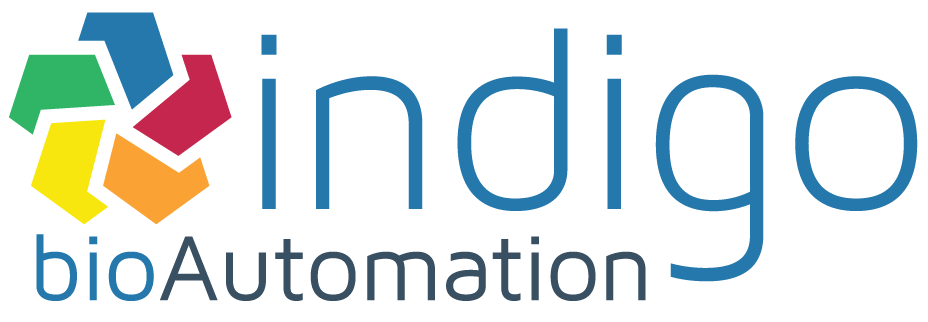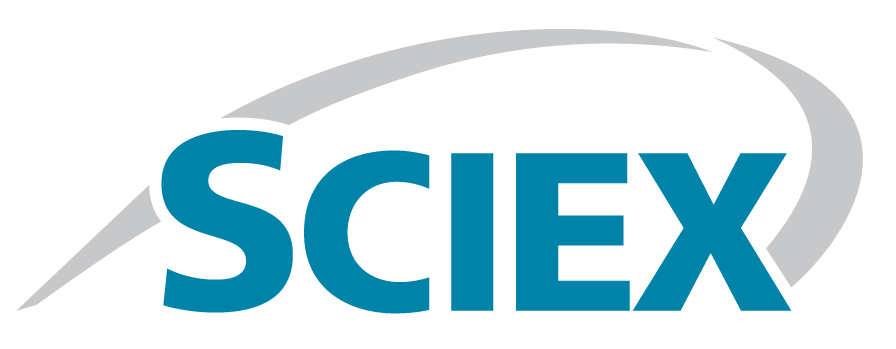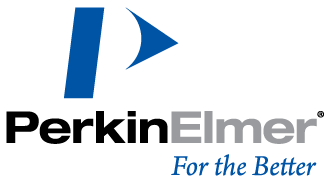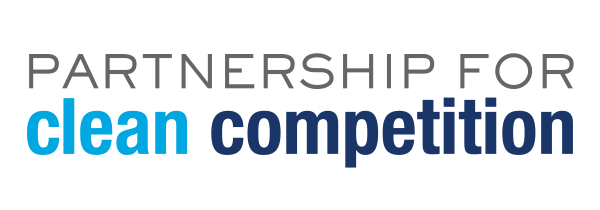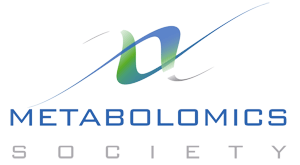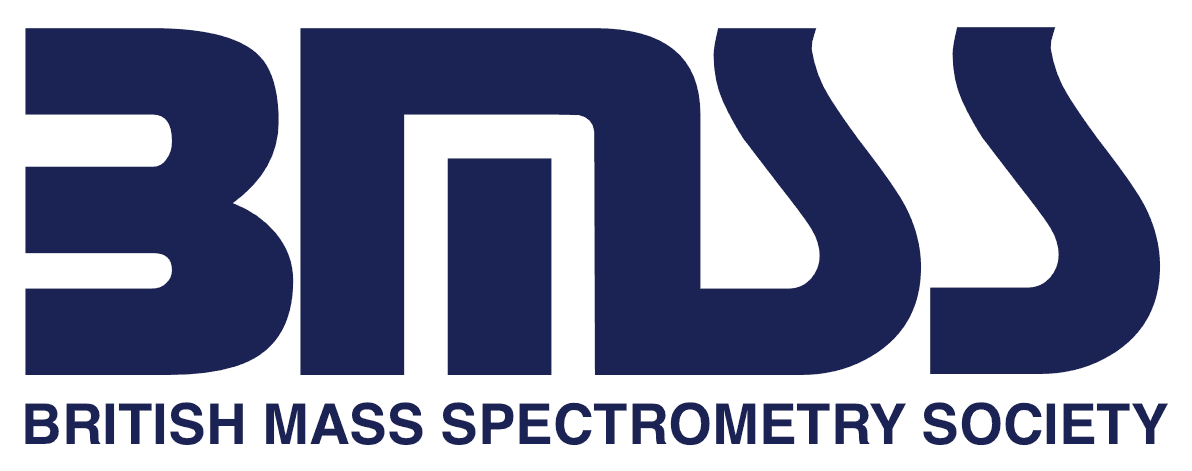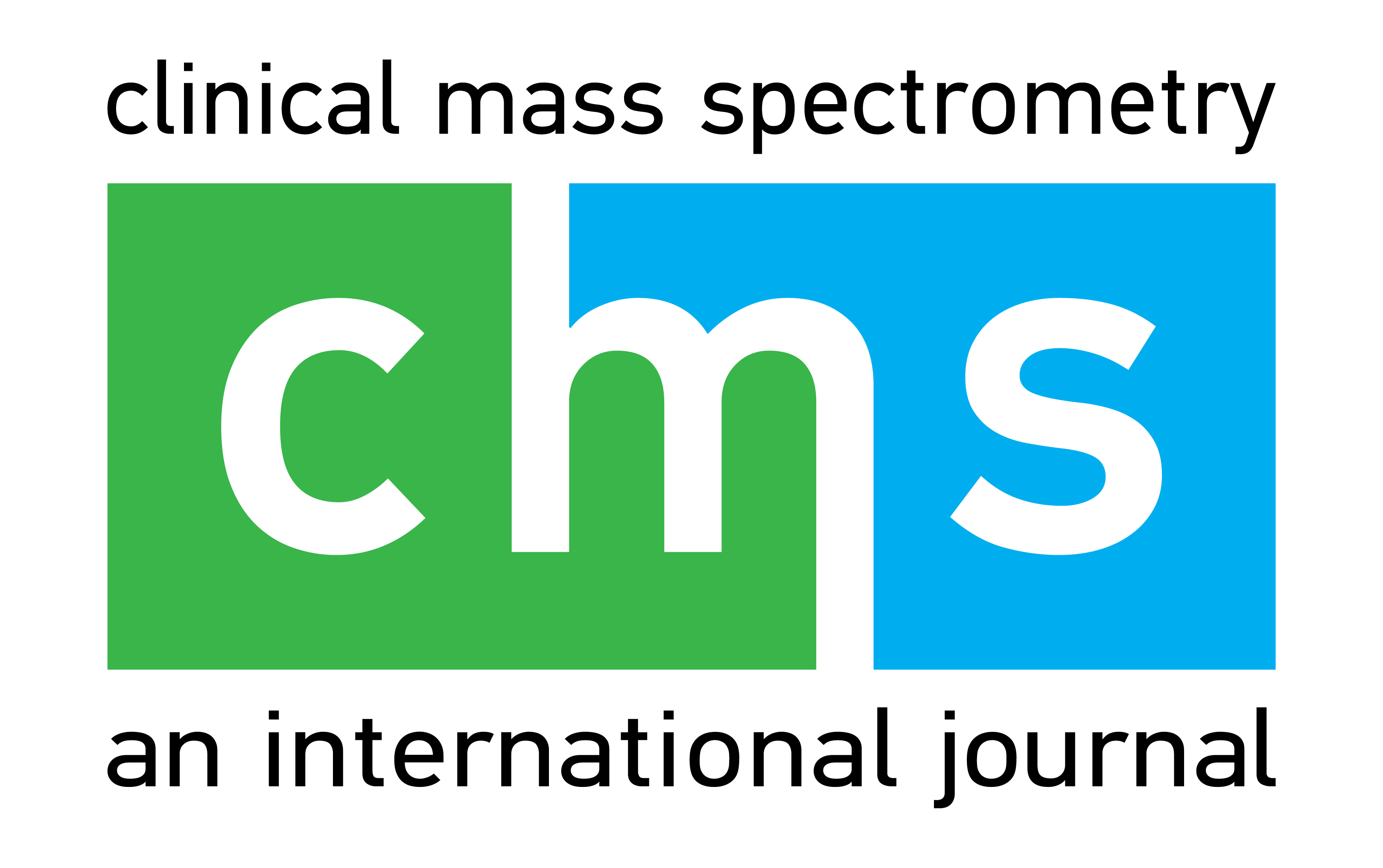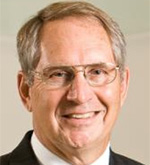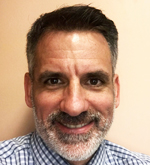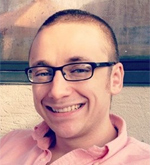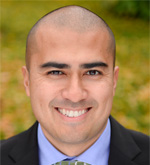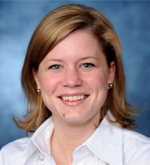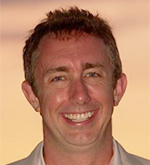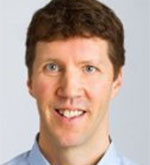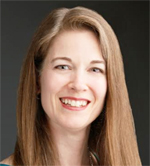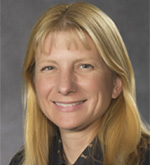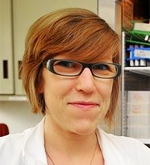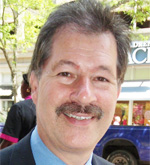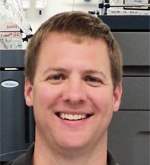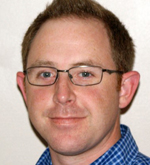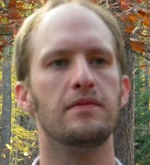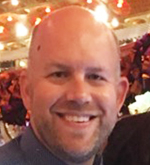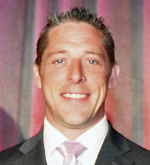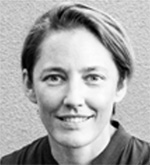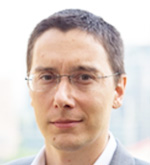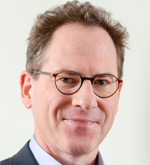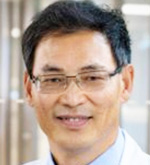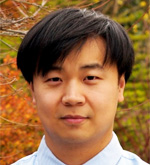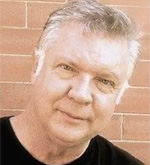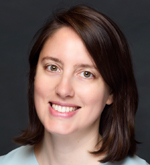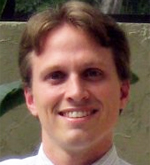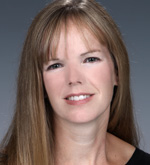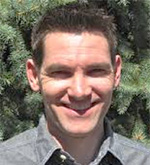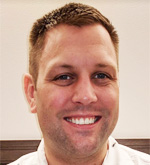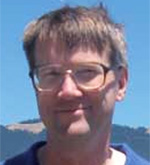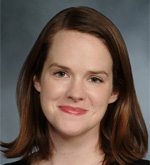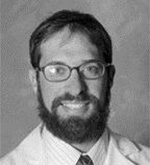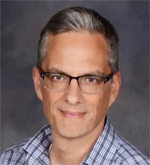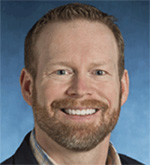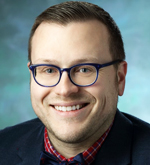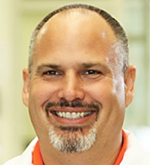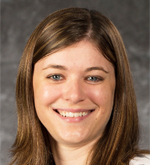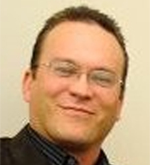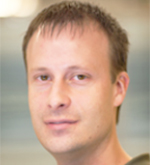MSACL 2019 USPalm Springs: Mar 31 - Apr 4 |
Details
MSACL US
|
Short Courses
| Register for Short Courses and/or the Conference via the Registration button above. |
MSACL hosts a diverse offering of Short Courses.
Short Courses will occur over the first three days of MSACL (Sunday, Monday, Tuesday of March 31 - April 2).
Courses are NOT replicated on different days. They are single courses that span 1 or 2 days.
| Course Contact Hours | ||||||
| Sunday PM | Monday AM | Lunch | Monday PM | Tuesday AM | ||
| Clinical MS Review | ||||||
| Clinical MS 301 (Intermediate - Advanced) A Comprehensive Review of Clinical Mass Spectrometry Technology & Techniques, including Miniaturization Jack Henion, PhD Location: Mesquite D Group: B | STARTS < Sunday 14:00-18:00 | Monday 8:00-12:00 | Lunch Monday 12:00-13:00 | Monday 13:00-17:00 | > ENDS Tuesday 8:00-12:00 | |
| Data Science | ||||||
| Data Science 101 (Beginner - Intermediate) Breaking up with Excel: An Introduction to the R Statistical Programming Language Daniel Holmes, MD & Will Slade, PhD Location: Room 1 Group: A | STARTS < Sunday 14:00-18:00 | Monday 7:30-11:30 | Lunch Monday 11:30-12:30 | Monday 12:30-16:30 | > ENDS Tuesday 7:30-11:30 | |
| Data Science 201 (Intermediate) Going Further With R: Tackling Clinical Laboratory Data Manipulation and Modeling Patrick Mathias, MD, PhD & Shannon Haymond, PhD Location: Pueblo B Group: C | STARTS < Sunday 14:00-18:00 | Monday 8:30-12:30 | Lunch Monday 12:30-13:30 | Monday 13:30-17:30 | > ENDS Tuesday 8:30-12:30 | |
| Data Science 202 (Beginner - Advanced) Skyline: A Vendor Neutral Tool for Quantitative Mass Spectrometry Michael MacCoss, PhD & Brendan MacLean Location: Pueblo A Group: C | STARTS < Sunday 14:00-18:00 | Monday 8:30-12:30 | Lunch Monday 12:30-13:30 | Monday 13:30-17:30 | > ENDS Tuesday 8:30-12:30 | |
| General Interest | ||||||
| Presentation 101 (Beginner) How to Maximize Your Influence Through Creating Compelling Presentations Karen Mahooti Location: Mesquite H Group: B This course is free, although Registration is required. | Not in Session | Not in Session | Lunch Monday Not Included | Not in Session | STARTS <> ENDS Tuesday 8:00-12:00 | |
| LC-MS | ||||||
| LC-MSMS 101 (Beginner - Intermediate) Getting Started with Quantitative LC-MS/MS in the Diagnostic Laboratory Lorin Bachmann, PhD & Grace van der Gugten Location: Andreas Group: B | STARTS < Sunday 14:00-18:00 | Monday 8:00-12:00 | Lunch Monday 12:00-13:00 | Monday 13:00-17:00 | > ENDS Tuesday 8:00-12:00 | |
| LC-MSMS 201 (Intermediate) Understanding and Optimization of LC-MS/MS to Develop Successful Methods for Identification and Quantitation in Complex Matrices Robert D. Voyksner, PhD Location: Chino A Group: B | STARTS < Sunday 14:00-18:00 | Monday 8:00-12:00 | Lunch Monday 12:00-13:00 | Monday 13:00-17:00 | > ENDS Tuesday 8:00-12:00 | |
| LC-MSMS 202 (Intermediate) Practical LC-MS Maintenance and Troubleshooting J. Will Thompson, PhD & Chris Shuford, PhD Location: Chino B Group: C | STARTS < Sunday 14:00-18:00 | Monday 8:30-12:30 | Lunch Monday 12:30-13:30 | Monday 13:30-17:30 | > ENDS Tuesday 8:30-12:30 | |
| LC-MSMS 301 (Advanced) Development and Validation of Quantitative LC-MS/MS Assays for Use in Clinical Diagnostics Brian Rappold, Matthew Crawford and Russell Grant Location: Room 3 Group: A | STARTS < Sunday 14:00-18:00 | Monday 7:30-11:30 | Lunch Monday 11:30-12:30 | Monday 12:30-16:30 | > ENDS Tuesday 7:30-11:30 | |
| Lipidomics | ||||||
| Lipidomics 101 (Beginner - Intermediate) Mass Spectrometry-based Lipidomics and Clinical Applications Anne K Bendt, PhD, Amaury Cazenave-Gassiot, PhD, Prof Markus R Wenk, Xianlin Han, PhD & Michael Chen, MD MSc Location: Room 5 Group: B | Not in Session | STARTS < Monday 8:00-12:00 | Lunch Monday 12:00-13:00 | > ENDS Monday 13:00-17:00 | Not in Session | |
| MALDI | ||||||
| MALDI 103 (Beginner - Intermediate) MALDI-MS Fundamentals and its Emerging Role in Pathology and Laboratory Medicine Mark W. Duncan, PhD & Mari L. DeMarco, PhD DABCC FACB FCACB Location: Mesquite G Group: C | Not in Session | STARTS < Monday 8:30-12:30 | Lunch Monday 12:30-13:30 | Monday 13:30-17:30 | > ENDS Tuesday 8:30-12:30 | |
| Metabolomics | ||||||
| Metabolomics 201 (Intermediate) Application of High Resolution Mass Spectrometry and Metabolomics in Clinical Analysis Timothy Garrett, PhD & Erin Baker, PhD Location: Mesquite F Group: C | STARTS < Sunday 14:00-18:00 | Monday 8:30-12:30 | Lunch Monday 12:30-13:30 | Monday 13:30-17:30 | > ENDS Tuesday 8:30-12:30 | |
| Microbiology | ||||||
| Microbiology 201 (Beginner - Intermediate) Applications of Mass Spectrometry in Clinical Microbiology Chris Cox, PhD, Kirk Jensen, PhD, Clifton Fagerquist, PhD, Rebecca Harris, MD Location: AguaCaliente Group: B | Not in Session | Not in Session | Lunch Monday 12:00-13:00 | STARTS < Monday 13:00-17:00 | > ENDS Tuesday 8:00-12:00 | |
| Proteomics | ||||||
| Proteomics 201 (Intermediate - Advanced) Clinical Proteomics Andy Hoofnagle, MD, PhD & Cory Bystrom, PhD Location: Room 4 Group: A | STARTS < Sunday 14:00-18:00 | Monday 7:30-11:30 | Lunch Monday 11:30-12:30 | Monday 12:30-16:30 | > ENDS Tuesday 7:30-11:30 | |
| Sample Preparation | ||||||
| Sample Prep 201 (Beginner - Intermediate) Sample Preparation and Alternative Matrices for LC-MS Assays William Clarke, PhD & Mark Marzinke, PhD Location: Mesquite E Group: C | Not in Session | STARTS < Monday 8:30-12:30 | Lunch Monday 12:30-13:30 | Monday 13:30-17:30 | > ENDS Tuesday 8:30-12:30 | |
| Toxicology | ||||||
| Forensic Tox 101 (Beginner) Basic Forensic Toxicology Jarrad Wagner, Ph.D., F-ABFT, Allison Veitenheimer, Ph.D., Russell Lewis, Ph.D., F-ABFT & Robert Johnson, PhD, F-ABFT Location: Room 2 Group: A | STARTS < Sunday 14:00-18:00 | > ENDS Monday 7:30-11:30 | Lunch Monday 11:30-12:30 | Not in Session | Not in Session | |
| Forensic Tox 201 (Intermediate - Advanced) Advanced Forensic Toxicology Jarrad Wagner, Ph.D., F-ABFT, Allison Veitenheimer, Ph.D., Russell Lewis, Ph.D., F-ABFT & Robert Johnson, PhD, F-ABFT Location: Room 2 Group: A | Not in Session | Not in Session | Lunch Monday 11:30-12:30 | STARTS < Monday 12:30-16:30 | > ENDS Tuesday 7:30-11:30 | |
Notice: Undefined index: days in /home/msacl0017/public_html/include/webpage_structure/include_subtab_content_nextgen.php(1236) : eval()'d code on line 230
Clinical MS 301 :: A Comprehensive Review of Clinical Mass Spectrometry Technology & Techniques, including Miniaturization
| Level: | Intermediate - Advanced | ||||||||||||||||||||
| Prereqs: | Students who sign up for this advanced course should either have five years or more of personal LC/MS/MS experience and familiarity with the scientific literature or have taken one or more introductory courses which cover atmospheric pressure ionization (API) techniques as well as the basics involved in routine LC/MS and LC/MS/MS analyses. | ||||||||||||||||||||
| Location: | Mesquite D | ||||||||||||||||||||
| Group: | B | ||||||||||||||||||||
| Instructor(s): | Jack Henion, PhD | ||||||||||||||||||||
| |||||||||||||||||||||
Jack Henion is Professor Emeritus of Toxicology at Cornell University in the Analytical Toxicology Section of the Diagnostic Laboratory within the College of Veterinary Medicine. He is also a co-founder, Chairman and CSO of Advion BioSciences (ABS), Inc., located in Ithaca, New York. Dr. Henion's work in LC/MS relates to the analysis of real-world samples common to pharmaceutical, environmental, and biochemical problems. The instructor has published extensively in the areas of conventional capillary GC/MS as well as LC/MS, SFC/MS, IC/MS, and CE/MS using atmospheric pressure ionization (API) technologies with quadrupole, ion trap, and time-of-flight mass spectrometers. | |||||||||||||||||||||
| |||||||||||||||||||||
Notice: Undefined variable: late_reg in /home/msacl0017/public_html/include/webpage_structure/include_subtab_content_nextgen.php(1236) : eval()'d code on line 452
Overview: This course presents presents a comprehensive overview of technology and techniques of analytical mass spectrometry and from that foundation extends into exciting, disruptive recent developments.
- Sample preparation
- Topics: New types of extraction, Issues to consider, Isolation of proteins from biological samples Ultrafiltration, Affinity techniques, Molecularly Imprinted Polymers (MIP?s), Aptamers, Thermo's MSIA pipette tips, Electro Extraction, Quechers, SISCAPA, Micro extractions: Dried blood spots (DBS), Dried Plasma Spots (DPS).
- Advanced separation techniques for large molecules
- Topics: UHPLC, Hydrophobic Interaction Chromatography (HIC), Nano-UHPLC, Micro LC/MS, Size Exclusion Chromatography (SEC), ion exchange chromatography, Capillary Electrophoresis (CE), Differential Mobility Spectrometry (DMS).
- Ionization techniques for MS
- Topics: Electrospray ionization (ESI), Nano ESI, Micro ESI, Atmospheric pressure chemical ionization (APCI), Atmospheric pressure photoionization (APPI), Matrix assisted laser desorption ionization (MALDI), LAESI, Electron Ionization (EI) and its potential for LC/MS.
- To Discuss: New ionization techniques which may be used without on-line separation science technology. This area has evolved into a variety of ambient ionization techniques such as DESI, DART, ASAP, etc.
- Mass Analyzers
- Quadrupoles, Ion traps, linear and quadrupole, Time-of-Flight (TOF), Orbitraps, Hybrid mass analyzer systems, Ion mobility spectrometers, and Differential Mobility Spectrometry (DMS).
- To Discuss: Developments and improvements in mass analyzers including linear ion traps, FTMS, time-of-flight (TOF), orbitraps, and accelerator mass spectrometry (AMS), the latter currently being applied to micro-dosing experiments by the pharmaceutical industry. Issues such as full-scan acquisition rates, high-resolution mass spectrometry (HRMS), the importance and usefulness of exact mass measurements for qualitative and quantitative analysis, and the analytical merits compared with modern SRM LC/MS experiments will be discussed with many practical examples and applications. The latter will include clinical chemistry issues as well as pharmaceutical, food safety, environmental and industrial examples.
- Imaging and profiling by MS
- Applications of recently reported ionization techniques for imaging the location of chemicals in various matrices employing MALDI, DESI, LAESI, LESA and other techniques.
- Topics: The technique of MALDI and its applications to tissue imaging as well as DESI, LAESI and also liquid extraction surface analysis (LESA) employing nano-electrospray. A comparison of the various classes of compounds where MALDI and nano ESI provide complimentary coverage of certain compounds found in biological and other matrices.
- High resolution MS
- Topics: Fundamentals, Mass Defects, Isotopic patterns, Mass axis calibration, Types of HRMS systems, Qual/Quan Analysis, Data mining processes, Future directions
- To Discuss: The analytical merits of HRAMS from QTOF as well as orbitraps and FTMS systems will be presented. Instances where either SRM LC/MS or LC HRAMS may be preferred for optimal selectivity due to chemical background or other interference issues.
- Miniaturization in MS
- Topics: Purdue University "Mini 11", Torion, Microsaic, Advion expression CMS, Waters QDa
- To Discuss: The benefits and limitations of smaller analytical instrumentation systems will be compared. This includes miniaturization of HPLC systems as well as the mass spectrometers themselves. The commercial introduction of chip-based HPLC systems closely integrated with mass spectrometers offers a glimpse of future directions in analytical chemistry.
- Synergistic Integration
- A systematic overview via specific examples with applications highlighting noted examples of innovative novel and non-standard technologies which demonstrate the analytical potential of new analytical technologies.
- Developing instrumentation and technologies will be important aspects of future mass spectrometry techniques and its expansion to important new applications. An extremely important example is the need for LC/MS bioanalysis (quantitation) of biologics (ADC?s, large molecules, RNA, etc.) in biological samples employing both bottom up and top down methods. HRAMS coupled with „protein friendly? chromatography will significantly expand our present analytical capabilities. Ion mobility spectrometry (IMS) and transportable mass spectrometers could lead to point-of-care applications and other far reaching applications of mass spectrometry beyond what we are doing today. The future is very exciting!
EarlyBird Deadline |
Regular Deadline |
After |
|
| Student / Post-Doc (Trainee) | $80 | $96 | $135 |
| Academic / Non-Profit | $240 | $288 | $405 |
| Commercial / Industry | $400 | $480 | $670 |
Notice: Undefined index: days in /home/msacl0017/public_html/include/webpage_structure/include_subtab_content_nextgen.php(1236) : eval()'d code on line 230
Data Science 101 :: Breaking up with Excel: An Introduction to the R Statistical Programming Language
| Level: | Beginner - Intermediate | ||||||||||||||||||||
| Prereqs: | - knowledge of Excel - able to bring a laptop - able to pre-install software on their laptop...Namely: R and R-studio - willingness to break up with Excel | ||||||||||||||||||||
| Location: | Room 1 | ||||||||||||||||||||
| Group: | A | ||||||||||||||||||||
| Instructor(s): | Daniel Holmes, MD & Will Slade, PhD | ||||||||||||||||||||
| |||||||||||||||||||||
Daniel Holmes, MD did his undergraduate degree in Chemical Physics from the University of Toronto with a focus on Quantum Mechanics. He went to medical school at the University of British Columbia (UBC) where he also did his residency in Medical Biochemistry. He is a Clinical Associate Professor of Pathology and Laboratory Medicine at UBC and Division Head of Clinical Chemistry at St. Paul's Hospital in Vancouver. Interests include laboratory medicine statistics, clinical endocrinology, clinical lipidology and clinical mass spectrometry. Assay development efforts in the last two years have focused on assays specialized endocrine testing. William Slade, PhD did his undergraduate degree in Biology from Concord University with a focus on Recombinant Gene Technology. He completed a PhD in Biological Sciences at Virginia Tech with a focus on Biological Mass Spectrometry before postdoctoral work at the University of North Carolina at Chapel Hill in the Analytical Chemistry department. He is currently a Researcher in the Mass Spectrometry Research and Development group at Laboratory Corporation of America Holdings in Burlington, North Carolina. His interests include clinical mass spectrometry and informatics.
| |||||||||||||||||||||
| |||||||||||||||||||||
Notice: Undefined variable: late_reg in /home/msacl0017/public_html/include/webpage_structure/include_subtab_content_nextgen.php(1236) : eval()'d code on line 452
Overview: Have you ever tried to do Deming regression in Excel only to discover that it is not available? Have you had your figure rejected by a journal because the resolution was not good enough? Have you wished that you could figure out a way to stop manually transcribing your LC-MS/MS results into the LIS?
Well, your wait is over because this year at MSACL we will be offering a course for complete programming newbies that will help you get going analyzing real data related to LC-MS/MS assay development, validation, implementation and publication. The only background expected is the ability to use a spreadsheet program. The skills that you will acquire will allow you to take advantage of the many tools already available in the R language and thereafter, when you see that your spreadsheet program does not have the capabilities to do what you need, you will no longer have to burst into tears. You will be empowe-R-ed.
The course will be run over two days and time will be evenly split between didactic sessions and hands on problem solving with real data sets. Drs Holmes and Master will adopt a “no student left behind policy”. Students will be given ample time to solve mini problems taken from real life laboratory work and focused on common laboratory tasks. All attendees will need to bring a laptop with the R language installed R Studio interface installed. Students may use Windows, Mac OSX or Linux environments. Both R and R studio are free and open-source. No cash required.
Students should be prepared for learning what computer programming is really like. This may involve some personal frustration but it will be worth it.
Obtaining the Software
Instructions for installing the R language are here: http://cran.r-project.org/
Instructions for installing R Studio are here: http://www.rstudio.com/
Course Description
The course will cover:
- The major types of R variables: vectors (numerical, character, logical), matrices, data frames and lists.
- The important classes: numeric, character, list and changing between them
- Importing data from Excel
- Dealing with non-numeric instrument data: the “<10”s and “>1000”s.
- Manipulating your data: sub-setting, which, match, sort, unique, cut
- Simple statistical tests: mean, median, quantiles (normal ranges), t-tests, ANOVA, Wilcoxon.
- Data merges: matching rows between sets
- Exporting data to Excel-like format.
- Regressions: Ordinary Least Squares,Passing Bablok, Deming, weighted regressions.
- Non-linear regressions
- Looping: Doing things repeatedly
- Writing your own functions
- Making highly customized graphs: scatter plots, regression lines, histograms, box plots, qq-plots
- Putting it all together projects:
- Preparing method comparison regression and Bland Altman plots
- Preparing mass spectrometry data for upload to LIS.
EarlyBird Deadline |
Regular Deadline |
After |
|
| Student / Post-Doc (Trainee) | $80 | $96 | $135 |
| Academic / Non-Profit | $240 | $288 | $405 |
| Commercial / Industry | $400 | $480 | $670 |
Notice: Undefined index: days in /home/msacl0017/public_html/include/webpage_structure/include_subtab_content_nextgen.php(1236) : eval()'d code on line 230
Data Science 201 :: Going Further With R: Tackling Clinical Laboratory Data Manipulation and Modeling
| Level: | Intermediate | ||||||||||||||||||||
| Prereqs: | Completed “Breaking Up With Excel” and/or familiar with basic R concepts. Able to bring a laptop. Able to pre-install software on laptop...Namely: R and R-studio. | ||||||||||||||||||||
| Location: | Pueblo B | ||||||||||||||||||||
| Group: | C | ||||||||||||||||||||
| Instructor(s): | Patrick Mathias, MD, PhD & Shannon Haymond, PhD | ||||||||||||||||||||
| |||||||||||||||||||||
Co-Instructor: Patrick Mathias, PhD Assistant Professor, Department of Laboratory Medicine, University of Washington Patrick Mathias completed his undergraduate degree in Electrical Engineering at Duke University, followed by a master’s degree in Electrical and Computer Engineering from the University of Illinois at Urbana-Champaign. He then completed a MD degree and a PhD in Bioengineering from the University of Illinois, with a focus on nanophotonics and label-free biosensors. He completed residency training in Clinical Pathology as well as a Clinical Informatics fellowship at the University of Washington. He is currently the Associate Director of the Informatics division in the Department of Laboratory Medicine at the University of Washington. His clinical and research interests lie in improving electronic health record systems to improve ordering and interpretation of laboratory tests, developing infrastructure for novel analytical technologies in the clinical laboratory, and applying analytics to improve laboratory operations and clinical care at a population level. Co-Instructor: Shannon Haymond, PhD
Ann and Robert H. Lurie Children’s Hospital of Chicago, and My research interests are focused on the evaluation and utilization of novel biomarkers in pediatric diseases and combining systems-based approaches with patient reported measures of quality of life to better understand individual variation in treatment response. Clinically, I am interested in the development and validation of mass spectrometry (LC-MS/MS) assays and in the integration and predictive analysis of diverse data. | |||||||||||||||||||||
| |||||||||||||||||||||
Notice: Undefined variable: late_reg in /home/msacl0017/public_html/include/webpage_structure/include_subtab_content_nextgen.php(1236) : eval()'d code on line 452
Overview: Having completed your first steps into the wonderful world of data analysis with R, would you like to go further? You’ve learned the basics of R, so now it’s time to put that knowledge to work and tackle some interesting clinical applications. Along the way you will also be introduced to even more of capabilities of R and the tools developed by the amazing R community.
The course will be run over two days and time will be split between lecture sessions, individual problem solving, and a highly interactive group-level data mining of real data sets (there may even be prizes). Like the introductory course, this class will maintain the “no student left behind policy”. Students will be given time to solve problems taken from real life laboratory work and to do some more advanced analysis on large scale data sets. All attendees will need to bring a laptop with the R language installed and R Studio interface installed. Students may use Windows, Mac OSX or Linux environments. Both R and R studio are free (as in “Free Beer”) and open-source.
Students should be prepared continue to expand their skill in programming – which, as you learned in the introductory course can be a little frustrating, but not as frustrating as not being able to get the computer to do what you want at all!
Obtaining the Software
Instructions for installing the R language are here: http://cran.r-project.org/
Instructions for installing R Studio are here: http://www.rstudio.com/
Course Description
The course will cover:
- Using the “Tidyverse”: a powerful collection of tools for working with R
- Conceptual basis for keeping data “tidy”
- Using the Import -> Tidy -> Transform -> Visualize -> Model -> Communicate pipeline
- Parsing non-tabular data formats such as XML and JSON
- Importing data from various sources including databases and web scraping
- Data wrangling and tools for cleaning up data before attempting anything
- Data visualization with the ggplot2 library
- Functional programming concepts for efficient iteration (purrr’s map functions)
- Fitting models which contain numeric and non-numeric data
- Introduction to R-Markdown for report generation
- Looping: Doing things repeatedly
- Writing your own functions
- Making highly customized graphs: scatter plots, regression lines, histograms, box plots, qq-plots
- Putting it all together projects:
- Preparing method comparison regression and Bland Altman plots
- Preparing mass spectrometry data for upload to LIS.
EarlyBird Deadline |
Regular Deadline |
After |
|
| Student / Post-Doc (Trainee) | $80 | $96 | $135 |
| Academic / Non-Profit | $240 | $288 | $405 |
| Commercial / Industry | $400 | $480 | $670 |
Notice: Undefined index: days in /home/msacl0017/public_html/include/webpage_structure/include_subtab_content_nextgen.php(1236) : eval()'d code on line 230
Data Science 202 :: Skyline: A Vendor Neutral Tool for Quantitative Mass Spectrometry
| Level: | Beginner - Advanced | ||||||||||||||||||||
| Prereqs: | An understanding of LC-MS/MS methods, and Able to bring a laptop. | ||||||||||||||||||||
| Location: | Pueblo A | ||||||||||||||||||||
| Group: | C | ||||||||||||||||||||
| Instructor(s): | Michael MacCoss, PhD & Brendan MacLean | ||||||||||||||||||||
| |||||||||||||||||||||
Michael MacCoss became interested in biomedical applications of mass spectrometry while working in Dr. Patrick Griffin’s protein mass spectrometry lab at Merck Research Laboratories. He obtained a Ph.D. with Professor Dwight Matthews and pursued a postdoc with Professor John R. Yates III. In 2004 he started the MacCoss lab at the University of Washington and it became obvious that while mass spectrometry data could be collected quickly and robustly, the lack of computational tools for the visualization and analysis of these data was a stumbling block. In 2009 he recruited Brendan MacLean with the goal of developing professional quality software tools for quantitative proteomics. Mike has worked closely with the Skyline development team and our outstanding group of laboratory scientists and collaborators to ensure that our software uses analytical approaches that have been thoroughly vetted by the mass spectrometry community. Brendan MacLean worked at Microsoft for 8 years in the 1990s where he was a lead developer and development manager for the Visual C++/Developer Studio Project. Since leaving Microsoft, Brendan has been the Vice President of Engineering for Westside Corporation, Director of Engineering for BEA Systems, Inc., Sr. Software Engineer at the Fred Hutchinson Cancer Research Center, and a founding partner of LakKey Software. In this last position he was one of the key programmers responsible for the Computational Proteomics Analysis System (CPAS), made significant contributions to the development of X!Tandem and the Trans Proteomic Pipeline, and created the LabKey Enterprise Pipeline. Since August, 2008 he has worked as a Sr. Software Engineer within the MacCoss lab and been responsible for all aspects of design, development and support in creating the Skyline Targeted Proteomics Environment and its growing worldwide user community. | |||||||||||||||||||||
| |||||||||||||||||||||
Notice: Undefined variable: late_reg in /home/msacl0017/public_html/include/webpage_structure/include_subtab_content_nextgen.php(1236) : eval()'d code on line 452
Overview: The course will focus on how to develop methods and perform the analysis using the Skyline Software Ecosystem (http://skyline.ms). Specifically, we will cover practical issues we have faced in performing data collection and in the interpretation of data. This will include the use of Skyline in the context of different quantitative targeted workflows, assay development, generation of acquisition methods, processing of quantitative data sets, deriving assay figures of merit, monitoring instrument system suitability and assay quality control, and sharing data and results. At the end of the course each participant will have experience in using Skyline for:
- The development and refinement of peptide and small molecule assays.
- Visualization and manual assessment of data from any instrument vendor.
- Performing signal calibration and assessment of assay figures of merit.
- Automated strategies for LC-MS system suitability monitoring
- Storing and sharing data using Panorama (http://panoramaweb.org).
Each course participant should come with a Windows computer (or Windows running in a virtual machine) and expect to work through the analysis of real data during the course.
EarlyBird Deadline |
Regular Deadline |
After |
|
| Student / Post-Doc (Trainee) | $80 | $96 | $135 |
| Academic / Non-Profit | $240 | $288 | $405 |
| Commercial / Industry | $400 | $480 | $670 |
Notice: Undefined index: days in /home/msacl0017/public_html/include/webpage_structure/include_subtab_content_nextgen.php(1236) : eval()'d code on line 230
Presentation 101 :: How to Maximize Your Influence Through Creating Compelling Presentations
• "Very useful and practical. It can be applied right away."
• "It was very well laid out and easy to understand. The audience interaction was great and very engaging."
• “Well worth the time.”
• "I felt very prepared when I had to make a presentation on a new topic. I spent far less time creating graphics I didn’t use and re-arranging slides with Karen’s method. Ultimately that led to less stress during the process of preparing the slides, and it improved the clarity and strengthened the message of my presentation."
| Level: | Beginner | ||||||||||||||||||||
| Prereqs: | None. | ||||||||||||||||||||
| Location: | Mesquite H | ||||||||||||||||||||
| Group: | B | ||||||||||||||||||||
| Instructor(s): | Karen Mahooti | ||||||||||||||||||||
| |||||||||||||||||||||
Karen has a passion for equipping people to bring their ideas to life in presentations. She has given highly-rated presentation training to professionals around the world from executives and managers to analysts, consultants, and students. In her 15+ year career in strategy consulting and marketing, she has created a multitude of clear and compelling presentations to help senior executives make better strategic decisions. She understands first-hand the challenges of building presentations when the stakes are high! Karen holds an MBA from Yale University. | |||||||||||||||||||||
| |||||||||||||||||||||
Notice: Undefined variable: late_reg in /home/msacl0017/public_html/include/webpage_structure/include_subtab_content_nextgen.php(1236) : eval()'d code on line 452
Overview: Your brilliant ideas only matter if you present them in a way they are clearly understood and compelling to your audience. This year we are excited to offer an abbreviated version of the highly-rated presentation course we have offered at MSACL for the past three years—ABSOLUTELY FREE!
ACE THE DECK will teach you how to use storyboarding—the method used by the world’s largest management consulting firms and Fortune 500 companies—to structure your content so it's highly compelling.
A lot of presentation training is designed for the person giving a keynote address from stage in a large auditorium—think TED talk. But most of us are creating something very different: lectures, research reports, proposals, and the like. And these slide decks have different challenges: being engaging while covering more content AND being extra clear since you won't always be there to narrate.
Join this class and walk through a proven, step-by-step process for building compelling, professional presentations. At the end you will know EXACTLY what to do first, second, third and be able to start right away.
Invest in yourself and accelerate your career. Learn how to get YOUR great ideas out there in a way that gets noticed.
“To be a successful scientist, you must be an effective communicator.” -Scientific American website
“Being able to articulate your work to a broad audience can have a tremendous impact on the discoverability of your research and the trajectory of your career.” -American Chemical Society Axial website
EarlyBird Deadline |
Regular Deadline |
After |
|
| Student / Post-Doc (Trainee) | $0 | $0 | $0 |
| Academic / Non-Profit | $0 | $0 | $0 |
| Commercial / Industry | $0 | $0 | $0 |
Notice: Undefined index: days in /home/msacl0017/public_html/include/webpage_structure/include_subtab_content_nextgen.php(1236) : eval()'d code on line 230
LC-MSMS 101 :: Getting Started with Quantitative LC-MS/MS in the Diagnostic Laboratory
| Level: | Beginner - Intermediate | ||||||||||||||||||||
| Prereqs: | |||||||||||||||||||||
| Location: | Andreas | ||||||||||||||||||||
| Group: | B | ||||||||||||||||||||
| Instructor(s): | Lorin Bachmann, PhD & Grace van der Gugten | ||||||||||||||||||||
| |||||||||||||||||||||
Co-Instructor: Lorin Bachmann, PhD, DABCC Lorin is Associate Professor of Pathology and Co-Director of Chemistry at Virginia Commonwealth University Medical Center. Dr. Bachmann’s areas of interest include implementation of LCMS in the clinical laboratory and laboratory test standardization. She routinely contributes to development of laboratory practice guidelines and has provided many lectures on practical implementation of clinical mass spectrometry. Co-Instructor: Grace Van Der Gugten Grace is LC-MS/MS Applications Development Specialist at St Paul’s Hospital in Vancouver BC. She is passionate about developing the most user friendly and streamlined LC-MS/MS assays as possible for routine use in the Special Chemistry Mass Spec Lab. She loves troubleshooting, especially when the cause of problem has been discovered and the issue solved!
| |||||||||||||||||||||
| |||||||||||||||||||||
Notice: Undefined variable: late_reg in /home/msacl0017/public_html/include/webpage_structure/include_subtab_content_nextgen.php(1236) : eval()'d code on line 452
Overview: Is your laboratory under pressure to purchase an LC-tandem MS or is the ROI you wrote last year haunting you now? This short course is designed for attendees implementing quantitative LC-tandem MS for patient testing who have laboratory medicine experience but no mass spectrometry training - CLS bench analysts, supervisors, R&D scientists, and laboratory directors. Theoretical concepts necessary for a robust implementation of clinical mass spectrometry will be presented – but the emphasis is on practical recommendations for:
- LC-MS/MS system purchasing
- site preparation and installation
- defining preliminary MSMS and LC parameters for your first method
- selecting and optimizing sample preparation for your first method
- choosing internal standards, solvents, and water, making reagents and calibrators
- adjusting sample preparation, LC and MSMS parameters to achieve the desired assay performance
- establishing data analysis & review criteria and an interface to the LIS
- pre-validation stress testing and method validation
- preventative maintenance and troubleshooting
- maintaining quality in production.
Our goal is to present just enough theory so you can report high quality results, while opening a window to the depth and complexity of clinical mass spectrometry such that your appetite is whetted to learn more. The IFCC Committee for Distance Learning published in 2017 a curriculum guideline for post-graduate trainees in laboratory medicine. This course includes all of the IFCC mass spectrometry curriculum listed in the “Principles of Analysis X-MS” section, except that we focus only on triple quadrupole mass spectrometry and metabolomics, proteomics and inborn errors of metabolism are not discussed. See also this reference by one of the team of short course instructors “Liquid chromatography-mass spectrometry education for clinical laboratory scientists.
A post-course online exam is available, with a certificate of completion for those who take and pass the exam within the examination window of two weeks after the meeting.
Previous exposure to the principles of clinical method validation, either didactic or practical, is assumed. A glossary of common LC-MSMS terms/acronyms, and diagrams delineating basic LC and MSMS instrument components and functions will be emailed to attendees a week prior to the beginning of the course. This material will also be addressed at the beginning of the course, but the initial learning curve can be steep and review prior to the course will be beneficial if you have absolutely no previous exposure with LC-MSMS.
EarlyBird Deadline |
Regular Deadline |
After |
|
| Student / Post-Doc (Trainee) | $80 | $96 | $135 |
| Academic / Non-Profit | $240 | $288 | $405 |
| Commercial / Industry | $400 | $480 | $670 |
Notice: Undefined index: days in /home/msacl0017/public_html/include/webpage_structure/include_subtab_content_nextgen.php(1236) : eval()'d code on line 230
LC-MSMS 201 :: Understanding and Optimization of LC-MS/MS to Develop Successful Methods for Identification and Quantitation in Complex Matrices
| Level: | Intermediate | ||||||||||||||||||||
| Prereqs: | General knowledge of laboratory techniques associated with HPLC and mass spectrometry and some hands-on experience with running an LC/MS system. | ||||||||||||||||||||
| Location: | Chino A | ||||||||||||||||||||
| Group: | B | ||||||||||||||||||||
| Instructor(s): | Robert D. Voyksner, PhD | ||||||||||||||||||||
| |||||||||||||||||||||
Instructor: Robert D. Voyksner, PhD Dr. Robert D. Voyksner received his B.S. in Chemistry at Canisius College in 1978 and his Ph.D. at the University of North Carolina at Chapel Hill in 1982. He was employed at Research Triangle Institute (RTI) from 1983-2001 as the director of the mass spectrometry facility and has been responsible for developing extraction, separation and mass spectrometric methods for biologically and environmentally significant compounds. His work earned him the Presidents Award, the highest award within RTI. In 2001 he co-founded LCMS Limited in Raleigh, NC and has been the President of the company to date. Under his direction LCMS Limited is working on technological advancements in LC/MS, offering services to pharmaceutical, clinical and agrochemical industry for solving unique problems by LC/MS/MS and offering training in LC/MS/MS and MS/MS interpretation and on LC/MS/MS instrumentation. Dr Voyksner is also an Adjunct professor at the North Carolina a School of Vetinary Medicine and at The University of North Carolina School of Pharmacy. Dr. Voyksner's research in mass spectrometry has resulted in over 230 publications and presentations, primarily in the area of HPLC/MS. He has served on the Board of Directors for The American Society For Mass Spectrometry (ASMS), is on the organization committee for The Montreux LC/MS Symposium and was the organizer for the 1995, 1999, 2003 and 2007 Montreux LC/MS Symposia. Dr. Voyksner has taught over 100 courses on LC/MS, CE/MS and CID interpretation during the past 10 years for ASMS, pharmaceutical companies; ISSX, PBA, HPCE and HPLC focused meetings. | |||||||||||||||||||||
| |||||||||||||||||||||
Notice: Undefined variable: late_reg in /home/msacl0017/public_html/include/webpage_structure/include_subtab_content_nextgen.php(1236) : eval()'d code on line 452
Overview: This course is designed for the chromatographer / mass spectrometrist who want to be successful in developing methods, method optimization and solving problems using LC/MS/MS. The course covers the atmospheric pressure ionization (API) techniques of electrospray, pneumatically assisted electrospray and atmospheric pressure chemical ionization (APCI) and atmospheric pressure photo ionization (APPI) using single quadrupole, triple quadrupole, time-of-flight and ion trap mass analyzers.
Discussions of sample preparation and chromatography will target method development and optimization for the analysis of "real-world" samples by LC/MS/MS.
The course highlights the following topics with respect to optimization a method to achieve the best sensitivity, specificity and sample throughput:
- Optimization ionization in API techniques,
- understanding and minimizing matrix suppression,
- relative merits of various LC column lengths, particle sizes and column diameters for LC/MS/MS analysis,
- introduction into the interpretation of MS/MS spectra,
- important issues in LC/MS/MS quantitation, and
- optimization of an quantitative analysis.
Applications of LC/MS/MS to analyze compounds of clinical interest in biological matrices will be discussed throughout the course to emphasize the topics covered.
EarlyBird Deadline |
Regular Deadline |
After |
|
| Student / Post-Doc (Trainee) | $80 | $96 | $135 |
| Academic / Non-Profit | $240 | $288 | $405 |
| Commercial / Industry | $400 | $480 | $670 |
Notice: Undefined index: days in /home/msacl0017/public_html/include/webpage_structure/include_subtab_content_nextgen.php(1236) : eval()'d code on line 230
LC-MSMS 202 :: Practical LC-MS Maintenance and Troubleshooting
| Level: | Intermediate | ||||||||||||||||||||
| Prereqs: | Experience with LC-MS systems. | ||||||||||||||||||||
| Location: | Chino B | ||||||||||||||||||||
| Group: | C | ||||||||||||||||||||
| Instructor(s): | J. Will Thompson, PhD & Chris Shuford, PhD | ||||||||||||||||||||
| |||||||||||||||||||||
Co-Instructor: Will Thompson, PhD Dr. Thompson received his Ph.D. in Analytical Chemistry from the University of North Carolina at Chapel Hill under Professor James Jorgenson in 2006. Following his Ph.D. he pursued a career in the application of UHPLC with high resolution mass spectrometry in the Disease and Biomarker Proteomics group of Dr. Arthur Moseley at GlaxoSmithKline, leaving GSK in 2008 to join Dr. Moseley in establishing the Duke Proteomics Core Facility. Dr. Thompson is currently the Assistant Director of the Duke Proteomics and Metabolomics Shared Resource, and a Research Assistant Professor in Department of Pharmacology and Cancer Biology. His research interests involve improving the throughput and sensitivity of unbiased and targeted proteomics and metabolomics approaches, with an eye towards generating assays which are easily translatable to the diagnostic laboratory. Co-Instructor: Christopher Shuford, PhD Chris Shuford, Ph.D., is Technical Director for research and development at LabCorp’s Center for Esoteric Testing in Burlington, North Carolina. Chris received his B.S. in Chemistry & Physics at Longwood University and obtained his Ph.D. in Bioanalytical Chemistry from North Carolina State University under the tutelage of Professor David Muddiman, where his research focused on applications of nano-flow chromatography (<500 nL/min) for multiplexed peptide quantification using protein cleavage coupled with isotope dilution mass spectrometry (PC-IDMS). In 2012, Chris joined LabCorp’s research and development team where his efforts have focused on development of high-flow chromatographic methods (>1 mL/min) for multiplexed and single protein assays for clinical application. | |||||||||||||||||||||
| |||||||||||||||||||||
Notice: Undefined variable: late_reg in /home/msacl0017/public_html/include/webpage_structure/include_subtab_content_nextgen.php(1236) : eval()'d code on line 452
Overview: The general goal of the course is to enable practitioners of LC-MS/MS in the clinical laboratory to quickly recognize and diagnose specific problems with instrumentation, in order to decrease downtime and cost of repairs. The course includes ‘best practices’ for instrumentation installation, upkeep and maintenance, practical troubleshooting workflows for LC and MS, and will use problem sessions to reinforce skillsets. Although the course uses examples from specific instrumentation for demonstration, the content is geared to be vendor-neutral and applicable to all LC-MS systems. Additionally, we will provide an opportunity to have instrumentation troubleshooting questions from your laboratory addressed by the facilitators.
Brief outline of course content:
- General “Best Practices” for Successful LC/MS Operation
- Best Practices; Getting Started on the Right Foot
- Breaking the System Down
- System Suitability! What is it, and how do I properly implement?
- Focus on Liquid Chromatography
- Diagnostics using the “heartbeat” of your Chromatographic system
- Key System components and where things go wrong
- LC troubleshooting workflow
- Maintenance Intervals; service contract or do-it-yourself?
- Problem sets
- Focus on Mass Spectrometry
- Discussion of Source, Transfer Optics, Vacuum and how each is critical to your system
- MS Troubleshooting workflow
- Ion optics cleaning and upkeep; what is ‘charging’?
- Problem sets
- Integrated System
- Ionization
- System Communications
- Multi-vendor configurations
- Strategies to simplify
- Integrated real-lab problem scenarios and team exercises
While some basics of instrument component operation will be covered, it will be most beneficial to scientists with experience actively using LC-MS/MS as an analysis tool. While an in-depth discussion of how to operate each individual instrument is surely outside the scope of any short course, specific system setups will be used as examples and attendees will be encouraged to ask questions about specific systems in their own laboratories.
EarlyBird Deadline |
Regular Deadline |
After |
|
| Student / Post-Doc (Trainee) | $80 | $96 | $135 |
| Academic / Non-Profit | $240 | $288 | $405 |
| Commercial / Industry | $400 | $480 | $670 |
Notice: Undefined index: days in /home/msacl0017/public_html/include/webpage_structure/include_subtab_content_nextgen.php(1236) : eval()'d code on line 230
LC-MSMS 301 :: Development and Validation of Quantitative LC-MS/MS Assays for Use in Clinical Diagnostics
| Level: | Advanced | ||||||||||||||||||||
| Prereqs: | The target audience should have extensive familiarity with LC-MS/MS systems. | ||||||||||||||||||||
| Location: | Room 3 | ||||||||||||||||||||
| Group: | A | ||||||||||||||||||||
| Instructor(s): | Brian Rappold, Matthew Crawford and Russell Grant | ||||||||||||||||||||
| |||||||||||||||||||||
Brian Rappold is the Scientific Director at Essential Testing in Collinsville, Illinois. He is a renowned expert in the field of method development and validation of mass spectrometry assays for clinical diagnostic use, teaching courses on this subject at numerous scientific conferences. His extensive knowledge and clinical perspective has granted him several opportunities to present his research internationally on the topics of hydrophilic interaction liquid chromatography for bio-analysis, multiplexed mass spectrometric detection of amino acidopathies and the origins and solutions of ion suppression in electrospray ionization. He currently serves as the chair of Clinical Chemistry for the American Society for Mass Spectrometry (ASMS) and has served on the Metabolomics and Small Molecule Analysis/Toxicology Scientific Committee for The Association for Mass Spectrometry: Applications to the Clinical Laboratory (MSACL). His research interests include the realization of open-access mass spectrometric systems and antibody-capture/mass spectrometry applications to diagnostic medicine. Matthew Crawford is a Researcher at LabCorp for the Mass Spectrometry Research and Development department. He received his Bachelors of Science in Biochemistry from California State University, Northridge in 2005. He entered the clinical lab space as a technician at LabCorp’s Esoterix Endocrinology and then moved to be a part of the corporate R&D team. His efforts are focused high-throughput small molecule method development, laboratory automation, and method validation (CAP, CLIA, and FDA Bioanalytical). Russell Grant received his PhD in chromatographic and mass spectrometric technologies from Swansea University in 1995. He continued his scientific training in various industrial settings which have included: senior scientist at GSK, principal scientist at Cohesive Technologies, Technical Director at Eli Lilly and Director of Mass Spectrometry at Esoterix Endocrinology. Dr. Grant has pioneered the use of direct injection technologies, chromatographic systems multiplexing, utility of automation and new analytical platforms for application in bioanalytical applications. His research goals are focused upon improvements in speed, sensitivity and quality of LC-MS/MS analytical systems and assays. | |||||||||||||||||||||
| |||||||||||||||||||||
Notice: Undefined variable: late_reg in /home/msacl0017/public_html/include/webpage_structure/include_subtab_content_nextgen.php(1236) : eval()'d code on line 452
Overview: This course will briefly introduce the key aspects of the LC-MS/MS experimental workflow and then focus on processes and experimental designs for assay development and analytical validation of assays to be employed within clinical diagnostics.
The first day will describe method development in detail, including how-to guides for initial optimization of mass spectrometry systems, chromatographic development and sample preparation schemes. Techniques and technologies for streamlining analytical performance will also be described. Transitional experiments from development to validation will be discussed in detail to stress test methodologies prior to analytical validation.
Day two will cover all details pertinent in validation of LC-MS/MS analytical workflows. Experimental designs for all aspects of validation, putative acceptance criteria and analytical solutions will be shown. Key validation criteria of selectivity, carry-over, matrix effect, accuracy, precision, linearity, stability and inter-assay correlation will be described using multiple case studies.
EarlyBird Deadline |
Regular Deadline |
After |
|
| Student / Post-Doc (Trainee) | $80 | $96 | $135 |
| Academic / Non-Profit | $240 | $288 | $405 |
| Commercial / Industry | $400 | $480 | $670 |
Notice: Undefined index: days in /home/msacl0017/public_html/include/webpage_structure/include_subtab_content_nextgen.php(1236) : eval()'d code on line 230
Lipidomics 101 :: Mass Spectrometry-based Lipidomics and Clinical Applications
| Level: | Beginner - Intermediate | ||||||||||||||||||||
| Prereqs: | Interest in LC-MS, clinical sciences, laboratory medicine, etc. AND a joint interest in lipids. | ||||||||||||||||||||
| Location: | Room 5 | ||||||||||||||||||||
| Group: | B | ||||||||||||||||||||
| Instructor(s): | Anne K Bendt, PhD, Amaury Cazenave-Gassiot, PhD, Prof Markus R Wenk, Xianlin Han, PhD & Michael Chen, MD MSc | ||||||||||||||||||||
| |||||||||||||||||||||
With a MSc in Marine Biotechnology (Greifswald University, Germany) and a PhD in Biochemistry (Cologne University, Germany) in close collaboration with industry, Anne Bendt has always been working on topics which are translatable into applications outside of the laboratory. Driven by her fascination for infectious diseases, she joined the National University of Singapore (NUS) in 2004 to develop lipidomics tools for tuberculosis studies. She is now a Principal Investigator at the Life Sciences Institute, NUS, focussing on translation of mass spec technologies into clinical applications, primarily for lipids and small molecules. Additionally, she is serving as the Associate Director of the Singapore Lipidomics Incubator (SLING) being in charge of operations and commercialization. Anne is passionate about training and education and has made substantial contributions to SLING’s various workshops and the highly successful ‘ic lipid’ training course. Research Assistant Prof. Cazenave-Gassiot is an early-career researcher and an expert in mass spectrometry-based lipidomics. He graduated with a PhD in analytical chemistry at the University of Southampton (UK), under the supervision of Dr John Langley, specialising in supercritical fluid chromatography and mass spectrometry. His interest in lipids started while a postdoc in the team of Professor Anthony Postle, still in Southampton. A member of SLING since 2009, his research centres on separation sciences, mass spectrometry, and their applications to life sciences, especially lipid biochemistry. He has developed chromatographic and mass spectrometric methods for the identification and quantification of lipids in diverse biological systems. This has included successful local and international collaborations. Markus Wenk has been interested in membrane lipids, their structure and function since his undergraduate years at the Biozentrum of the University of Basel. At Yale he introduced and established novel techniques for analysis of phospholipid metabolism. His work resulted in scientific publications which have had a major impact on conceptual advancements in the field of lipid metabolism. He established SLING, the Singapore lipidomics incubator, an interdisciplinary program dedicated to innovation, education and partnership in lipidomics research. Markus Wenk is Provost’s Chair, Professor and Head of the Department of Biochemistry at the National University of Singapore (NUS). Prof. Xianlin Han is an endowed chair Professor of Medicine, Biochemistry, the Barshop Institute for Longevity and Aging Studies, and the Biggs Institute for Alzheimer’s & Neurodegenerative Diseases at the University of Texas Health Science Center at San Antonio. Prof. Han who is one of the pioneers in lipidomics and the inventor of shotgun lipidomics has published over 250 peer-reviewed papers with an H-index of 73 and over 21,000 citations, and is the author of the book “Lipidomics: Comprehensive Mass Spectrometry of Lipids” and the co-author of the book “Lipid Analysis” with Dr. William W. Christie. The research interests in Dr. Han's lab focus on lipidomics in identifying molecular mechanisms underpinning altered lipid metabolism and homeostasis under a variety of patho(physio)logical conditions (i.e., on pretransitional and transitional research). Michael Chen did his undergraduate degree in Biochemistry, and subsequently obtained his MD from McGill University. After residency in Laboratory Medicine at McGill, he completed his Master’s Degree (McGill University and University of Victoria) as part of the Clinician Investigator Program in Experimental Medicine with a focus on Clinical Proteomics. He also received fellowship training in clinical lipidology. Michael is also a Medical co-Director at the Victoria Lipid Clinic. Dr Chen’s research interests focus on clinical and translational mass spectrometry. His current medical practice and research emphasizes on the following domains: (1) management of inherited dyslipidemia (2) biomarker verification and validation using mass spectrometry-based technique (3) implementation of mass spectrometry assays in clinical laboratory (4) standardization and utilization of remnant biospecimens for biobanking. | |||||||||||||||||||||
| |||||||||||||||||||||
Notice: Undefined variable: late_reg in /home/msacl0017/public_html/include/webpage_structure/include_subtab_content_nextgen.php(1236) : eval()'d code on line 452
Overview: This 8-hr course is meant to (1) create awareness for the importance and therefore potential value of lipid testing beyond cholesterol and triglycerides for future clinical applications. We will (2) then outline currently available technologies and their respective opportunities and challenges, and (3) discuss candidate molecules in the context of two case studies. (4) Finally, this short course is designed to be engaging thus will require some active participation via online live-feedback.
1) Looking beyond cholesterol and TAG:
- Gain an understanding of the universe of lipids, how they are intricately linked to biology and their implications in health and diseases
- Potential of blood based lipid testing
- Identify physiologically relevant candidate lipids for adoption by the clinical community, for future studies towards establishing clinical utility
2) Current lipidomics R&D workflows:
- Path of translation from R&D laboratory-style methods towards robust and quantitative assays with appropriate turnaround times
- Pre-analytics (sampling requirements, plasma vs serum, storage, etc.)
- Analytics (i.e. batches, internal standards, lipid extractions, direct infusion vs LC-MS and LC-MS/MS, quality assurance)
- Post-analytics (raw data processing, lipid annotations, quality control, quantification),
- Ongoing harmonization efforts
3) Case studies of markers that have advanced to clinical settings:
- Examples of markers that have already been implemented in a clinical setting in larger scale studies, to illustrate the feasibility and technical tractability, the clinical impact of lipid testing and its value on overall healthcare
4) Outreach and Engagement between the analytical scientist specialized in mass spectrometry of lipids, the clinician researcher and laboratory medicine as the end user are key to the development of impactful / useful lipidomics in clinical applications.
EarlyBird Deadline |
Regular Deadline |
After |
|
| Student / Post-Doc (Trainee) | $40 | $48 | $70 |
| Academic / Non-Profit | $120 | $144 | $200 |
| Commercial / Industry | $250 | $300 | $350 |
Notice: Undefined index: days in /home/msacl0017/public_html/include/webpage_structure/include_subtab_content_nextgen.php(1236) : eval()'d code on line 230
MALDI 103 :: MALDI-MS Fundamentals and its Emerging Role in Pathology and Laboratory Medicine
| Level: | Beginner - Intermediate | ||||||||||||||||||||
| Prereqs: | Attendees should have some background in mass spectrometry and the basics of clinical and/or analytical chemistry, but this is not essential. | ||||||||||||||||||||
| Location: | Mesquite G | ||||||||||||||||||||
| Group: | C | ||||||||||||||||||||
| Instructor(s): | Mark W. Duncan, PhD & Mari L. DeMarco, PhD DABCC FACB FCACB | ||||||||||||||||||||
| |||||||||||||||||||||
Mark W. Duncan's (Veritomyx) research interests include clinical mass spectrometry, biomarker development and MALDI-MS. He has extensive experience in the application of MALDI-MS, both as a qualitative and a quantitative tool. Mari L. DeMarco's (Clinical Associate Professor, Department of Pathology and Laboratory Medicine, University of British Columbia, Vancouver, Canada; Michael Smith Foundation for Health Research Scholar) clinical service focuses on development of novel mass spectrometry assays in support of the clinical laboratory at St Paul's Hospital, Providence Health Care. Her research lab develops strategies for quantitative MS workflows for protein biomarkers and leverages MALDI-TOF MS instrumentation for assay design and implementation. | |||||||||||||||||||||
| |||||||||||||||||||||
Notice: Undefined variable: late_reg in /home/msacl0017/public_html/include/webpage_structure/include_subtab_content_nextgen.php(1236) : eval()'d code on line 452
Overview: This course introduces the key aspects of MALDI-MS, and current and emerging applications in medicine. This course is designed for those interested in developing, implementing and/or refining clinical applications of MALDI-MS. Didactic sessions will be followed by tutorials/cases where participants will get hands-on experience operating actual MALDI-TOF MS instruments.
Day-1 will focus on general instrument operation, sample prep and data analysis. This will be followed by a more in-depth discussion and presentation of specific applications for qualitative and quantitative analysis of peptides and proteins. We will highlight both the strengths and weaknesses of MALDI-MS, and illustrate potential MALDI-MS applications to patient care. In each section we will discuss relevant experimental design/operation, assay development, analytical validation and utility. Basic “how-to guides” will be presented.
Day-2 will focus on MALDI tissue imaging, genotyping, toxicology and other emerging applications of MALDI in pathology and laboratory medicine. Expert guest lectures will give a targeted “real-world” lecture followed by a question-and-answer period. The course will conclude with an informal question-and-answers/discussion session centered on topics of specific interest to the participants.
Specific topics covered in this course include the following:
- Introduction to MALDI-MS: how a MALDI-MS instrument works; advantages and disadvantages of MALDI-MS; variations on the laser desorption/ionization theme – MALDI, SELDI, DIOS, DESI, LAESI, etc; different instrument configurations and analyzer types; advances in instrumentation; the basics of how to generate a spectrum and critical practical considerations (e.g., selection of matrix, laser power, shot number and other experimental variables).
- Qualitative protein workflows: applications in Chemistry and Clinical Microbiology, including pathogen ID: basic principles; strengths & weaknesses; the laboratory process; development and application of databases for automatic interpretation of MALDI spectra (concepts); systems available for FDA approved pathogen identification and their features.
- Quantitative protein workflows and post-translational modifications: quantification by MALDI-MS; TOF-TOF quantification; related quantitative strategies; loss mass analyte analysis; approach to developing new assays by MALDI-TOF; sample processing (dilution, concentration, purification, etc.; transfer to MALDI plate; matrix choice and deposition; instrument parameters).
- Informatics: databases, software options, data analysis and interpretation.
- Genomics & toxicology: applications of MALDI to genotyping and toxicological investigations.
- Mass Spectrometry Imaging: Fundamentals; strengths & weaknesses; sample considerations; tissue processing and matrix application; clinical applications of MALDI imaging and profiling by MS.
EarlyBird Deadline |
Regular Deadline |
After |
|
| Student / Post-Doc (Trainee) | $60 | $70 | $100 |
| Academic / Non-Profit | $180 | $215 | $300 |
| Commercial / Industry | $300 | $360 | $500 |
Notice: Undefined index: days in /home/msacl0017/public_html/include/webpage_structure/include_subtab_content_nextgen.php(1236) : eval()'d code on line 230
Metabolomics 201 :: Application of High Resolution Mass Spectrometry and Metabolomics in Clinical Analysis
| Level: | Intermediate | ||||||||||||||||||||
| Prereqs: | LC/MS hands on experience. | ||||||||||||||||||||
| Location: | Mesquite F | ||||||||||||||||||||
| Group: | C | ||||||||||||||||||||
| Instructor(s): | Timothy Garrett, PhD & Erin Baker, PhD | ||||||||||||||||||||
| |||||||||||||||||||||
Co-Instructor: Timothy Garrett, PhD Dr. Garrett received his undergraduate degree from the University of Georgia in Chemistry graduating Summa Cum Laude with Highest Honors. As an undergraduate, he worked in the lab of Dr. I. Jonathan Amster on the characterization of bacterial proteins using MALDI-TOF. After 2 years in industry, he enrolled in the PhD program at the University of Florida working under the direction of Dr. Richard A. Yost. As a graduate student, he worked on the first imaging mass spectrometry based ion trap instrument through a partnership with Thermo and studied the disposition of phospholipids in brain tissue. He is currently an Associate Professor in the Department of Pathology at the University of Florida, where he is Associate Director for the Southeast Center for Integrated Metabolomics (SECIM). Dr. Garrett has over 20 years of experience in the field of mass spectrometry spanning both instrument and application development. His background has involved the application of the ‘Omics from the development of MALDI based approaches to analyze proteins in bacteria to the development of imaging mass spectrometry instrumentation and application for analyzing small molecules in tissue specimens; his main focus is currently the translation of LC-HRMS based metabolomics to clinical diagnostics. Prof Garrett is the author of over 60 publications and is an Editorial Board member for Clinical Mass Spectrometry and PLOSOne. His current interest are in the application of direct tissue analysis approaches such as MALDI, DESI, and LMJSSP as well as the use of high resolution mass spectrometry in metabolomics and routine diagnostics. He enjoys the interplay between technological advancement and clinical analysis providing unique opportunities and experiences to develop the future diagnostics. Co-Instructor: Erin Baker, PhD Dr. Erin Baker is a bioanalytical chemist with more than 16 years' experience utilizing ion mobility spectrometry in conjunction with mass spectrometry (IMS-MS) to study environmental and biological systems. In the last 10 years she has worked primarily on IMS-MS applications in the field of proteomics and more recently she has worked to optimize IMS-MS metabolomic, glycomic and lipidomic separations. Her research involves the development and evaluation of high-throughput IMS-MS, SPE-IMS-MS and LC-IMS-MS analyses to quickly study numerous samples in a short time period without losing valuable biological information, as well as assessing the number and quality of features detected with IMS-MS for comparison with existing MS platforms. Dr. Baker is also presently working with the PNNL Informatics team to design and implement software tools that automatically analyze the complex multidimensional SPE-IMS-MS and LC-IMS-MS data. | |||||||||||||||||||||
| |||||||||||||||||||||
Notice: Undefined variable: late_reg in /home/msacl0017/public_html/include/webpage_structure/include_subtab_content_nextgen.php(1236) : eval()'d code on line 452
Overview: Metabolomics describes the analysis of the small molecules present in our body and ingested from the surrounding environment (i.e. drugs, pesticides, etc.). The analysis of these metabolites has recently been utilized to discover new markers of disease and perturbed metabolic pathways. Metabolomic analyses can be performed with either targeted or untargeted measurements. In targeted studies, only a small subset of metabolites is analyzed and this prevalent in clinical analyses for measurements such as those for newborn screening. Untargeted measurements, however, study all possible small molecules in a single injection and heavily rely on the use of high resolution mass spectrometry to precisely measure the m/z values across many samples. Untargeted measurements are almost always coupled to either gas or liquid chromatography or ion mobility as the retention time or mobility provides an important secondary distinguishing characteristic of each specific metabolite. It is expected that both targeted and untargeted metabolomic measurements will have an important place in future clinical studies.
Given the growth of metabolomics over the past several years, the use of high resolution mass spectrometry has rapidly progressed. High resolution approaches to measure small molecules offer several advantages for clinical analyses such as confirmation via accurate mass of the precursor and product ions and an evaluation of the isotopic abundance. This short course will cover the application of high resolution mass spectrometry to both quantitative and semi-quantitative analyses with a focus on metabolomics.
Topics in this short course include: mass accuracy for identification, tandem mass spectrometry, quantitative aspects of high resolution mass spectrometry, identifying and measuring the metabolome, statistical analysis, ion mobility spectrometry, and liquid and gas chromatography coupled to high resolution MS.
EarlyBird Deadline |
Regular Deadline |
After |
|
| Student / Post-Doc (Trainee) | $80 | $96 | $135 |
| Academic / Non-Profit | $240 | $288 | $405 |
| Commercial / Industry | $400 | $480 | $670 |
Notice: Undefined index: days in /home/msacl0017/public_html/include/webpage_structure/include_subtab_content_nextgen.php(1236) : eval()'d code on line 230
Microbiology 201 :: Applications of Mass Spectrometry in Clinical Microbiology
| Level: | Beginner - Intermediate | ||||||||||||||||||||
| Prereqs: | None. | ||||||||||||||||||||
| Location: | AguaCaliente | ||||||||||||||||||||
| Group: | B | ||||||||||||||||||||
| Instructor(s): | Chris Cox, PhD, Kirk Jensen, PhD, Clifton Fagerquist, PhD, Rebecca Harris, MD | ||||||||||||||||||||
| |||||||||||||||||||||
Dr. Chris Cox’s research interests center on microbial identification, diagnostics development and MALDI-TOF MS with an emphasis on novel fatty acid and bacteriophage-based mass spectrometric methods of microbial analysis and antibiotic resistance profiling. Dr. Cox has over a decade of experience in the fields of pathogen ID, phage biology and modeling of bacterial GI tract colonization and virulence. Dr. Kirk R. Jensen has a PhD in applied chemistry from Colorado School of Mines. His dissertation work comprised of several mass spectrometry projects at the intersection of chemistry and other disciplines including medicine and microbiology. Several of his projects have used multivariate analysis to look at mass spectrometric data. His current research interests include bacterial identification, multivariate analysis, and new time-of-flight data collection methodologies. He has ten years of mass spectrometry experience and has spent the last five years applying different statistical methods to various mass spectrometry projects including bacterial identification, biomarker analysis, and a new time-of-flight data acquisition method. Dr. Clifton K. Fagerquist received his Ph.D. in physical chemistry from UCLA in 1994 where he studied stable and metastable gas phase clusters using fast atom bombardment and sector-field mass spectrometry. After post-doctoral research at UC Berkeley and two years directing a mass spectrometry facility at University of Minnesota, Minneapolis, he joined the Agricultural Research Service (ARS) in Philadelphia. He then moved to the ARS facility in Albany, California where he has been using advanced mass spectrometry and proteomic techniques to characterize foodborne pathogens and their toxins. Dr. Rebecca Harris is an assistant professor in the Department of Pathology and Laboratory Medicine at Weill Cornell Medical College. She completed her residency in clinical pathology at Beth Israel Deaconess/Harvard Medical School followed by a fellowship in clinical microbiology at ARUP Laboratories/The University of Utah. She is currently the assistant director of the central clinical laboratory at NewYork-Presbyterian/Weill Cornell, as well as the laboratory director for NewYork-Presbyterian Westchester Division. She is interested in the intersection of clinical microbiology and chemistry laboratories and improvements in infectious disease diagnostics through mass spectrometry-based methods.
| |||||||||||||||||||||
| |||||||||||||||||||||
Notice: Undefined variable: late_reg in /home/msacl0017/public_html/include/webpage_structure/include_subtab_content_nextgen.php(1236) : eval()'d code on line 452
Overview: Are you interested in mass spectrometry for infectious disease diagnostics? This course is designed to provide an overview of the field. Both established and emerging mass spectrometry-based methods employed in clinical microbiology will be analyzed and discussed.
Specific topics will include:
- A crash course on clinical microbiology and current diagnostic needs
- Comparison of bottom-up and top-down proteomic approaches
- MALDI-TOF MS for microbial identification in the clinical lab
- Emerging MALDI-TOF MS applications
- Experimental (non-MALDI) mass spectrometry approaches for ID diagnostics
EarlyBird Deadline |
Regular Deadline |
After |
|
| Student / Post-Doc (Trainee) | $40 | $48 | $75 |
| Academic / Non-Profit | $120 | $144 | $200 |
| Commercial / Industry | $250 | $300 | $350 |
Notice: Undefined index: days in /home/msacl0017/public_html/include/webpage_structure/include_subtab_content_nextgen.php(1236) : eval()'d code on line 230
Proteomics 201 :: Clinical Proteomics
| Level: | Intermediate - Advanced | ||||||||||||||||||||
| Prereqs: | Practical knowledge of quantitative mass spectrometry. | ||||||||||||||||||||
| Location: | Room 4 | ||||||||||||||||||||
| Group: | A | ||||||||||||||||||||
| Instructor(s): | Andy Hoofnagle, MD, PhD & Cory Bystrom, PhD | ||||||||||||||||||||
| |||||||||||||||||||||
Co-Instructor: Andy Hoofnagle, MD, PhD Dr. Hoofnagle's laboratory focuses on the precise quantification of recognized protein biomarkers in human plasma using LC-MRM/MS. In addition, they have worked to develop novel assays for the quantification of small molecules in clinical and research settings. His laboratory also studies the role that the systemic inflammation plays in the pathophysiology of obesity, diabetes, and cardiovascular disease. Co-Instructor: Cory Bystrom, PhD Dr. Cory Bystrom serves as Director of Research and Development at Cleveland HeartLab where he is responsible for novel biomarker identification, validation and commercialization with an emphasis on quantitative biological mass spectrometry. Dr. Bystrom has over a decade of experience as a laboratory leader and chemist. Prior to joining CHL, he was at Quest Diagnostics Nichols Institute as associate director of research and development with responsibilities for development of tests and identification of analytical strategies for commercialization of new biomarkers. He also has held research and development roles at Oregon Health Science University, Fonterra, and Pharmacia and Upjohn.
| |||||||||||||||||||||
| |||||||||||||||||||||
Notice: Undefined variable: late_reg in /home/msacl0017/public_html/include/webpage_structure/include_subtab_content_nextgen.php(1236) : eval()'d code on line 452
Overview: This course will explore the background of clinical proteomics and approaches to method development and validation. We will provide the motivation for using mass spectrometry to quantify proteins in clinical research and in clinical care. The promise of mass spectrometry to improve the accuracy and precision of results is only realized with robust methods. In order to prepare participants to begin to develop their own robust methods for quantification we will focus on the following topics:
- Why mass spec for peptides and proteins
- Optimization of digestion and other aspects of the method
- Internal standards
- Calibration
- Immunoaffinity enrichment
- Validation
- Quality control
- Case studies
EarlyBird Deadline |
Regular Deadline |
After |
|
| Student / Post-Doc (Trainee) | $80 | $96 | $135 |
| Academic / Non-Profit | $240 | $288 | $405 |
| Commercial / Industry | $400 | $480 | $670 |
Notice: Undefined index: days in /home/msacl0017/public_html/include/webpage_structure/include_subtab_content_nextgen.php(1236) : eval()'d code on line 230
Sample Prep 201 :: Sample Preparation and Alternative Matrices for LC-MS Assays
| Level: | Beginner - Intermediate | ||||||||||||||||||||
| Prereqs: | Familiarity with LC-MS/MS. | ||||||||||||||||||||
| Location: | Mesquite E | ||||||||||||||||||||
| Group: | C | ||||||||||||||||||||
| Instructor(s): | William Clarke, PhD & Mark Marzinke, PhD | ||||||||||||||||||||
| |||||||||||||||||||||
| |||||||||||||||||||||
Notice: Undefined variable: late_reg in /home/msacl0017/public_html/include/webpage_structure/include_subtab_content_nextgen.php(1236) : eval()'d code on line 452
Overview: This course will encompass various sample preparation approaches used for LC-MS assays. The course will highlight not only the importance of sample processing in the clinical laboratory environment, but also illustrate the “fit for purpose” application of processing techniques in clinical mass spectrometry. This course will also discuss the theory behind different specimen preparation methods, strengths and weaknesses of each approach, as well as opportunities for automation. The first 8 hours will serve as a primer of the role of upfront sample management, utilizing examples in blood and urine specimen sources. There will also be an introduction to the application of LC-MS approaches in alternative matrices. The second 8 hours will elaborate on the foundations established in the first half, and expand into newer technologies and automated alternatives for sample processing.
Specific topics to be covered include:
- Pain points in clinical LC-MS
- Overview of specimen processing in laboratory medicine
- Off-line sample processing
- On-line sample processing
- Analysis of blood and urine
- LC-MS of tissue specimens
- Alternate body fluid specimens (e.g. CSF, breast milk, etc.)
- Intracellular and metabolite analysis
- Dried specimens as matrices
- Automation of sample processing
Topics will be covered through lecture, Q&A, Case Studies, and small group exercises.
EarlyBird Deadline |
Regular Deadline |
After |
|
| Student / Post-Doc (Trainee) | $60 | $70 | $100 |
| Academic / Non-Profit | $180 | $215 | $300 |
| Commercial / Industry | $300 | $360 | $500 |
Notice: Undefined index: days in /home/msacl0017/public_html/include/webpage_structure/include_subtab_content_nextgen.php(1236) : eval()'d code on line 230
Forensic Tox 101 :: Basic Forensic Toxicology
| Level: | Beginner | ||||||||||||||||||||
| Prereqs: | None. | ||||||||||||||||||||
| Location: | Room 2 | ||||||||||||||||||||
| Group: | A | ||||||||||||||||||||
| Instructor(s): | Jarrad Wagner, Ph.D., F-ABFT, Allison Veitenheimer, Ph.D., Russell Lewis, Ph.D., F-ABFT & Robert Johnson, PhD, F-ABFT | ||||||||||||||||||||
| |||||||||||||||||||||
Dr. Jarrad Wagner is a Professor of Forensic Sciences at Oklahoma State University Center for Health Sciences (OSU CHS), where he is the Director of the Forensic Toxicology and Trace Laboratory (FTTL). His works primarily with triple quadrupole LC/MS/MS instruments and supporting forensic and clinical laboratories in method development, validation and training. Dr. Wagner is a Fellow of the American Board of Forensic Toxicology and also a Fellow in the Criminalistics section of the American Academy of Forensic Sciences. He serves as a member of the AAFS/SOFT Drugs and Driving Committee on the Oral Fluid subcommittee, is a member of the National Safety Council Alcohol, Drugs and Impairment Division and Vice Chair of the Oklahoma State Board of Tests for Alcohol and Drug Influence. In addition to his role as faculty, he has also formerly been a chemist, a forensic scientist and reserve police officer. Dr. Allison Veitenheimer is the Forensic Toxicology Team Lead at the Federal Aviation Administration’s Bioaeronautical Sciences Research Laboratory at the Civil Aerospace Medical Institute in Oklahoma City, Oklahoma. There, she supervises and performs toxicological analyses of civil aircraft accident fatalities and high-visibility NTSB surface accidents. Dr. Veitenheimer also serves as a member of the graduate faculty at Oklahoma State University Center for Health Sciences, School of Forensic Sciences. She has experience in method development and validation with both LC/MS/MS and GC/MS in toxicology, drug, and explosives analysis. Dr. Veitenheimer’s current research activities include developing new methods for the analysis of drugs in postmortem specimens. She has authored/co-authored several scientific journal articles as well as presented at numerous conferences and workshops. Dr. Veitenheimer holds a Ph.D. in Veterinary Biomedical Sciences and a Master of Science in Forensic Sciences with an emphasis in toxicology from Oklahoma State University and a Bachelor of Science from Baylor University. She also holds a Graduate Certificate in Interdisciplinary Toxicology from Oklahoma State University. Dr. Lewis is the Forensic Sciences Supervisor at the Federal Aviation Administration’s Forensic Sciences Laboratory at the Civil Aerospace Medical Institute in Oklahoma City, Oklahoma. There he oversees the toxicological analyses of civil aircraft accident fatalities and select NTSB surface accidents, acts as the certifying toxicologist, and provides expert testimony for casework and final case reports. Dr. Lewis also serves as an Adjunct Clinical Assistant Professor for Oklahoma State University Center for Health Sciences, School of Forensic Sciences. Dr. Lewis’ current research activities include investigating postmortem ethanol formation and developing new methods for the analysis of drugs in postmortem specimens. Dr. Lewis has authored/co-authored over 85 scientific journal articles /book chapters/government reports. Prior to his life as a forensic scientist Dr. Lewis received a Bachelor of Science in Chemistry and Mathematics dual major in 1991 (Black Hills State University, South Dakota), a Master’s in Chemistry in 1994 (University of Oklahoma), a Specialization in Neuroscience in 1995 (University of Oklahoma Health Sciences Center), and a Ph.D. in Analytical Chemistry in 1997 (the University of Oklahoma). Robert Johnson, Ph.D., F-ABFT graduated from The University of Oklahoma with a Ph.D. in Analytical Chemistry in 2004. Dr. Johnson worked for the Federal Aviation Administration at the Civil Aerospace Medical Institute (CAMI) as a Research Chemist for 10 years. After achieving ABFT certification n 2011 he joined the Tarrant County Medical Examiner's office in Fort Worth, TX where he currently serves as the Chief Toxicologist. Dr. Johnson is active in several professional societies including the Society of Forensic Toxicologists, the American Academy of Forensic Sciences, the National Safety Council’s Alcohol, Drugs and Impairment Division, the Organization of Scientific Area Committee’s (OSAC) Forensic Toxicology Subcommittee, and the Southwestern Association of Toxicologists. He has published 60 scientific articles in his career all of which deal specifically with forensic toxicology and has presented at numerous meetings and workshops. | |||||||||||||||||||||
| |||||||||||||||||||||
Notice: Undefined variable: late_reg in /home/msacl0017/public_html/include/webpage_structure/include_subtab_content_nextgen.php(1236) : eval()'d code on line 452
Overview: This 1-day, 8-hour course aims to make scientists familiar with the basic concepts of forensic toxicology. It is presented at the beginner level and is ideal for attendees that wish to learn more about the forensic toxicology landscape. Specific topics that are addressed include:
- Intro to Forensic Toxicology
- History of Forensic Toxicology
- Analytical Techniques in Forensic Toxicology (Colorimetric, Immunoassay, Hyphenated Chromatography-Detection)
- Modern Divisions
- Human Performance Toxicology
- Description, Specimen Types, Analytical Techniques, Interpretation Challenges, Case Studies
- Ethanol
- DUID
- Postmortem Toxicology (Description, Specimen Types, Analytical Techniques, Interpretation Challenges, Case Studies)
- Workplace Drug Testing (Description, Specimen Types, Analytical Techniques, Interpretation Challenges, Case Studies)
- Quality Assurance in Forensic Toxicology (Validation, Accreditation and Certification)
EarlyBird Deadline |
Regular Deadline |
After |
|
| Student / Post-Doc (Trainee) | $40 | $48 | $70 |
| Academic / Non-Profit | $120 | $144 | $200 |
| Commercial / Industry | $250 | $300 | $350 |
Notice: Undefined index: days in /home/msacl0017/public_html/include/webpage_structure/include_subtab_content_nextgen.php(1236) : eval()'d code on line 230
Forensic Tox 201 :: Advanced Forensic Toxicology
| Level: | Intermediate - Advanced | ||||||||||||||||||||
| Prereqs: | Forensic Toxicology 101 recommended, not required. | ||||||||||||||||||||
| Location: | Room 2 | ||||||||||||||||||||
| Group: | A | ||||||||||||||||||||
| Instructor(s): | Jarrad Wagner, Ph.D., F-ABFT, Allison Veitenheimer, Ph.D., Russell Lewis, Ph.D., F-ABFT & Robert Johnson, PhD, F-ABFT | ||||||||||||||||||||
| |||||||||||||||||||||
Dr. Jarrad Wagner is a Professor of Forensic Sciences at Oklahoma State University Center for Health Sciences (OSU CHS), where he is the Director of the Forensic Toxicology and Trace Laboratory (FTTL). His works primarily with triple quadrupole LC/MS/MS instruments and supporting forensic and clinical laboratories in method development, validation and training. Dr. Wagner is a Fellow of the American Board of Forensic Toxicology and also a Fellow in the Criminalistics section of the American Academy of Forensic Sciences. He serves as a member of the AAFS/SOFT Drugs and Driving Committee on the Oral Fluid subcommittee, is a member of the National Safety Council Alcohol, Drugs and Impairment Division and Vice Chair of the Oklahoma State Board of Tests for Alcohol and Drug Influence. In addition to his role as faculty, he has also formerly been a chemist, a forensic scientist and reserve police officer. Dr. Allison Veitenheimer is the Forensic Toxicology Team Lead at the Federal Aviation Administration’s Bioaeronautical Sciences Research Laboratory at the Civil Aerospace Medical Institute in Oklahoma City, Oklahoma. There, she supervises and performs toxicological analyses of civil aircraft accident fatalities and high-visibility NTSB surface accidents. Dr. Veitenheimer also serves as a member of the graduate faculty at Oklahoma State University Center for Health Sciences, School of Forensic Sciences. She has experience in method development and validation with both LC/MS/MS and GC/MS in toxicology, drug, and explosives analysis. Dr. Veitenheimer’s current research activities include developing new methods for the analysis of drugs in postmortem specimens. She has authored/co-authored several scientific journal articles as well as presented at numerous conferences and workshops. Dr. Veitenheimer holds a Ph.D. in Veterinary Biomedical Sciences and a Master of Science in Forensic Sciences with an emphasis in toxicology from Oklahoma State University and a Bachelor of Science from Baylor University. She also holds a Graduate Certificate in Interdisciplinary Toxicology from Oklahoma State University. Dr. Lewis is the Forensic Sciences Supervisor at the Federal Aviation Administration’s Forensic Sciences Laboratory at the Civil Aerospace Medical Institute in Oklahoma City, Oklahoma. There he oversees the toxicological analyses of civil aircraft accident fatalities and select NTSB surface accidents, acts as the certifying toxicologist, and provides expert testimony for casework and final case reports. Dr. Lewis also serves as an Adjunct Clinical Assistant Professor for Oklahoma State University Center for Health Sciences, School of Forensic Sciences. Dr. Lewis’ current research activities include investigating postmortem ethanol formation and developing new methods for the analysis of drugs in postmortem specimens. Dr. Lewis has authored/co-authored over 85 scientific journal articles /book chapters/government reports. Prior to his life as a forensic scientist Dr. Lewis received a Bachelor of Science in Chemistry and Mathematics dual major in 1991 (Black Hills State University, South Dakota), a Master’s in Chemistry in 1994 (University of Oklahoma), a Specialization in Neuroscience in 1995 (University of Oklahoma Health Sciences Center), and a Ph.D. in Analytical Chemistry in 1997 (the University of Oklahoma). Robert Johnson, Ph.D., F-ABFT graduated from The University of Oklahoma with a Ph.D. in Analytical Chemistry in 2004. Dr. Johnson worked for the Federal Aviation Administration at the Civil Aerospace Medical Institute (CAMI) as a Research Chemist for 10 years. After achieving ABFT certification n 2011 he joined the Tarrant County Medical Examiner's office in Fort Worth, TX where he currently serves as the Chief Toxicologist. Dr. Johnson is active in several professional societies including the Society of Forensic Toxicologists, the American Academy of Forensic Sciences, the National Safety Council’s Alcohol, Drugs and Impairment Division, the Organization of Scientific Area Committee’s (OSAC) Forensic Toxicology Subcommittee, and the Southwestern Association of Toxicologists. He has published 60 scientific articles in his career all of which deal specifically with forensic toxicology and has presented at numerous meetings and workshops. | |||||||||||||||||||||
| |||||||||||||||||||||
Notice: Undefined variable: late_reg in /home/msacl0017/public_html/include/webpage_structure/include_subtab_content_nextgen.php(1236) : eval()'d code on line 452
Overview: This 1-day, 8-hour course aims to make scientists familiar with the issues surrounding various classes of drugs and their role in forensic toxicology scenarios. Current drug use trends in the United States will be discussed, along with analytical recommendations. It is presented at the intermediate to advanced level and is ideal for attendees that wish to gain more advanced knowledge about forensic toxicology analytes.
BLOCK 1
- Cannabinoids
- Prevalence
- Pharmacology/Toxicology
- Human Performance Toxicology
- Interpretation challenges
- Case Studies
- Post-Mortem Toxicology
- Interpretation challenges
- Case Studies
- Stimulants/Sympathomimetics
- Prevalence
- Pharmacology/Toxicology
- Human Performance Toxicology
- Interpretation challenges
- Case Studies
- Post-Mortem Toxicology
- Interpretation challenges
- Case Studies
- Benzodiazepines
- Prevalence
- Pharmacology/Toxicology
- Human Performance Toxicology
- Interpretation challenges
- Case Studies
- Post-Mortem Toxicology
- Interpretation challenges
- Case Studies
- Opiates/Opioids
- Prevalence
- Pharmacology/Toxicology
- Human Performance Toxicology
- Interpretation challenges
- Case Studies
- Post-Mortem Toxicology
- Interpretation challenges
- Case Studies
- Novel Psychoactive Substances (NPS)
- Prevalence
- Pharmacology/Toxicology
- Human Performance Toxicology
- Interpretation challenges
- Case Studies
- Post-Mortem Toxicology
- Interpretation challenges
- Case Studies
- Drug-Facilitated Crimes
EarlyBird Deadline |
Regular Deadline |
After |
|
| Student / Post-Doc (Trainee) | $40 | $48 | $75 |
| Academic / Non-Profit | $120 | $144 | $200 |
| Commercial / Industry | $250 | $300 | $350 |




